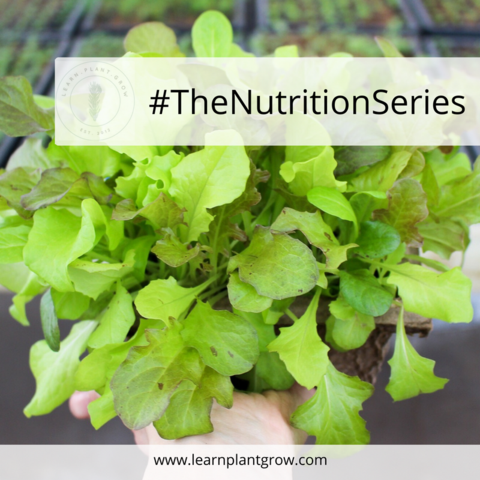2017: Year of New and Renew
2017 is learnplantgrow.com’s year of renewal. We’re going to refresh and renew the blog and website with our girl Tara from The Banner Years(formally Hatch & Harbour), and we’re going to spend a lot more time this year writing gardening information for you. We feel like we’ve got a lot of very important things we need to write about.
Throughout the year, you’ll see the theme renew/renewal pop up all over our blog posts and social media.
This is also a year of celebration. It’s Canada’s big 150th birthday in July and you can bet we’re going to woop it up to show our Canadian pride.
So let’s get right into our first blog post of the year!

Chapter 1: What you should ask instead of “Is This Organic?”
One of the resolutions that’s on repeat for most people every year (including myself) is “Do a better job at taking care of myself”. I’ve been watching instagram, and facebook and noticed that the majority of people want to make 2017 the year of health.
So, naturally as gardeners, we all feel instrumentally linked to these resolutions but there’s a dirty little secret in gardening that most people fail to ask themselves.
The question we should be asking ourselves when growing and buying food isn’t “Is this organic?” but instead we should be asking ourselves “What’s the nutrition content?”
Creating a new awareness to look at the nutrition content in the food we produce as gardeners unlocks the potential for our ability to create healthier food.
I’ve had several conversations with my amazing local clients (who are THE best resource for my blogging content) and have realized that there is a major misconception when it comes to fertilizing.
It’s like tires on a car; it’s dangerous and irresponsible to keep driving on bald tires. You need to take care of the soil you’re growing in to reap the benefits of nutritious food. What that means is that you have to put back what you take out and that generally is in the form of composting and fertilizing our garden.
You can still grow an organic garden, but grow with the thought of replacing the nutrients that are being pulled out by your veggies so that you can truly eat the healthiest food.
- Our first tip is to add compost to your garden every year. As a bonus, you can even make your own compost by throwing your vegetable peelings and old veggies from the fridge into a designated area on the corner of your garden, letting it decompose, and then working it into your garden in the spring.
- Our second tip (and easiest way to protect your soil) is crop rotating. Make sure to never plant your potatoes, carrots, onions, or any vegetables in the same place from year to year.
- Our third tip is to soil test your garden every couple years. This may seem like overkill, but you don’t really know what to add back in if you don’t know what’s missing. We’ve got you covered if you don’t know when, how, or where to pick up a test. Just contact us at info@learnplantgrow.com and we’ll help you.
- Our fourth tip is to fertilize your plants in your garden. You’ve already added compost and rotated your garden which is a great start. Once you start soil testing you learn what you need to balance out your soil to feed your plants properly. Again, as a bonus, we can add in micro-nutrients to create more nutritious filled food.
We’re going to dig deeper (haha!!) into how you as a home gardener can protect and manage your soil in your garden over this series.
Comments +